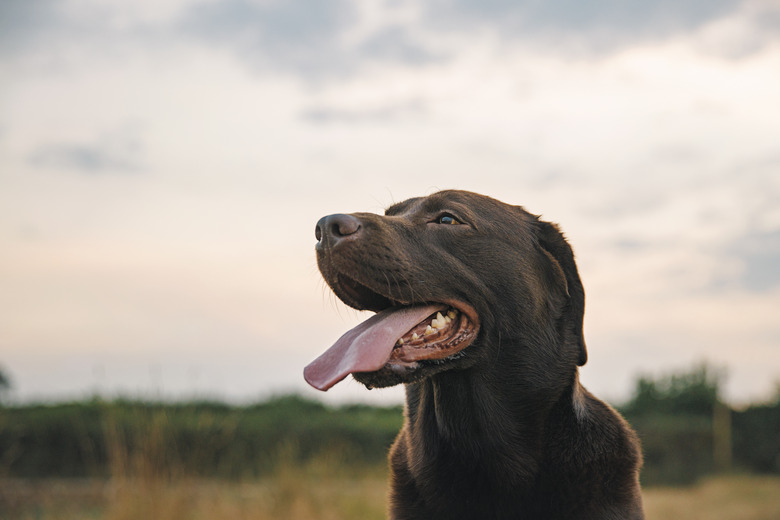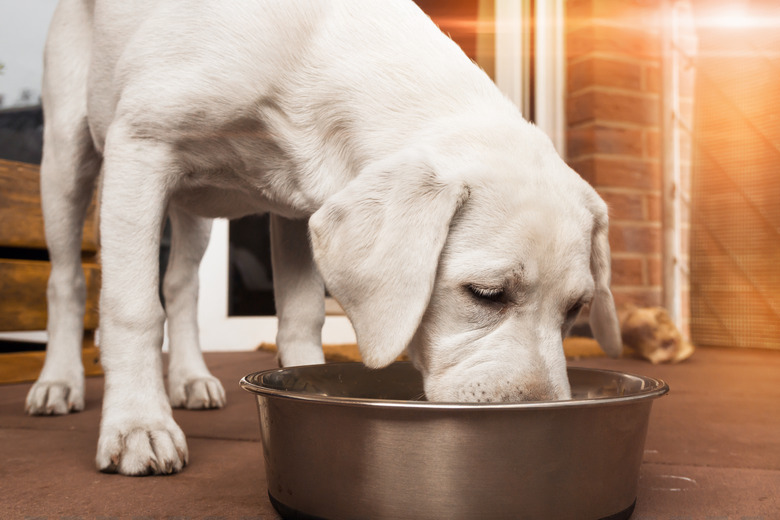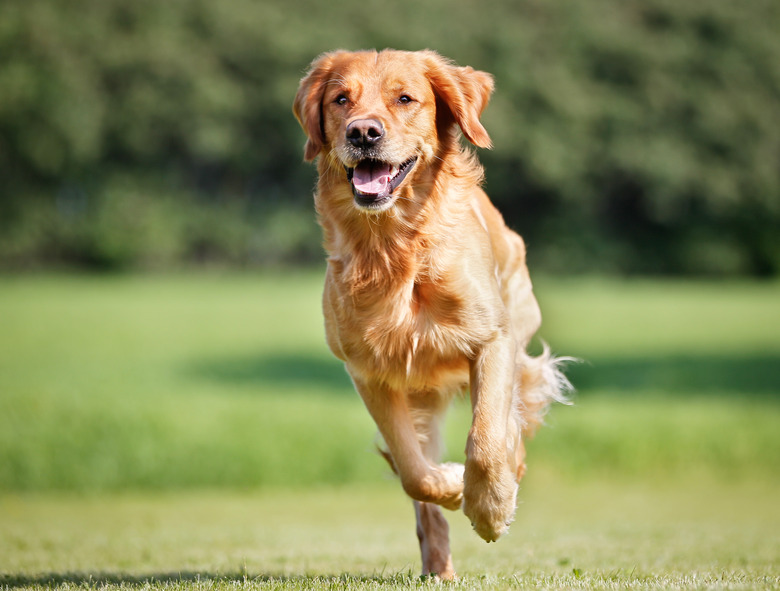Home Remedy For Gas In Dogs
Blaming that unfortunate smell on the dog is a classic party trick — but sometimes it really is actually the dog. In fact, there are a number of dog breeds prone to bloat, and just like humans, most pups occasionally experience gas and flatulence (and all the smells and intestinal discomfort that come with it).
If your dog is gassy, it's not inherently something to worry about. Excessive gas can be caused by a number of factors like the types of food your dog is eating and how fast they're eating them. Nonetheless, no one wants to watch their dog suffer from an uncomfortable, bloated gut.
These bloated puppy home remedies can help you ease your dog's gas pain, but the solution isn't always easy. Enlist your vet and identify the cause before figuring out the best plan of action. You'll be much more successful if you stop gas before it happens, and it's important to rule out medical conditions like irritable bowel syndrome (IBS), canine colitis, or pancreatitis.
Try an elimination diet
Try an elimination diet
Like humans, dogs can have allergies to certain foods, which make them harder to digest or cause bloating, gas, and intestinal discomfort. Sometimes, one of the easiest natural ways to cure bloat in dogs is to rule out food intolerances through an elimination diet. Your vet can give you an idea about how to get started, but the cure can ultimately be as simple as switching your pup to grain-free food.
Some of the most common food intolerances among dogs include beef, dairy, wheat, chicken, and egg. These also happen to be common ingredients in commercial dog foods and raw diets alike. Your dog could also be allergic to storage mites, which is common for dog foods that are stored in unsealed containers for six weeks or more. This can be prevented by storing food in a sealed container in a cool, dry place and tossing it after a month.
Help your dog slow down
Help your dog slow down
Some dogs eat so fast that they swallow air, which in turn, causes gas and bloating. This is actually one of the most common reasons for excessive gas in dogs, but unfortunately, you can't tell them to slow down like you would a child. Instead, you have to force them to eat slower.
Slowing down a dog who enjoys scarfing his food in 60 seconds flat may seem like a task, but there are a number of ways to go about it. You can try multiple small feedings instead of one or two larger feedings a day. You can also use interactive food toys, raised food dishes, and those puzzle toys that require a dog to shake around an object to get the food to come out. Other people put a tennis ball or two in the dog bowl, which forces their dog to eat around the ball rather than swallow it in a gulp.
If you have numerous dogs, it may be a case of perceived food competition. You can nip this in the bud by feeding your dogs in separate rooms or separate crates, where they will feel comfortable slowing down.
Avoid gas-causing foods
Avoid gas-causing foods
The best bloated puppy home remedy is to stop bloat before it begins by avoiding foods that commonly cause excessive gas, even if they might technically be healthy and loaded with vitamins. While your pup may not specifically have an intolerance, certain foods take longer to ferment in the colon, which causes excessive gas. Some of these foods include:
- Soybeans, peas, and beans
- Bran
- Fruits
- Beet pulp
- Pectin
- Psyllium
- Milk and dairy products
- High fructose corn syrup
You may be unknowingly feeding your dog gas-inducing ingredients, so check the label of your pup's food. Even pet-friendly veggies like broccoli and brussels sprouts can cause stinky gas in dogs like they do in humans.
Most importantly, stop feeding your pup table scraps. Human food is often high in fat and sugar, which makes it some of the worst food to feed dogs who are prone to gas (and humans, too). Yes, it's hard to resist them begging (especially with their adorable faces) but sometimes it's necessary.
Over-the-counter remedies
Over-the-counter remedies
Probiotics can aid in digestion and reduce gas, but you should always ask your vet if they're suitable for your pet. Different brands contain different ingredients and you may be able to use a supplement made for human consumption. You can also purchase one especially made for dogs.
Beyond that, some people claim that dry activated charcoal is one of the best natural ways to cure bloat in dogs, though it's traditional use is for poisoning or intoxication. The amount you need to be use depends on your dog's size and the severity of the problem, so talk to your vet before giving your dog any over-the-counter remedies.
Let your pup exercise
Let your pup exercise
Your dog probably loves to run around, and it's actually also a great way to help relieve gas and bloating. Exercise helps promote bowel movements and releases gas, so make sure your gassy dog remains active.
There is one rule, though. Wait at least an hour between exercise and food. Active play and exercise before eating can make your dog more out of breath, which means he might end up swallowing a lot of air if he eats immediately following. Exercising right after eating can also lead to gas and bloating.
Dog breeds prone to bloat
Dog breeds prone to bloat
If you can't find the source of your dog's gas, you may just have one of the dog breeds prone to bloat. In this case, your vet may be able to prescribe something like simethicone or an antacid. This should help to reduce your dog's flatulence problem, but keep in mind that some larger breeds are prone to a life-threatening bloating condition called gastric dilatation and volvulus (GDV).
Gas can be a warning sign of early stage GDV, which primarily effects large dogs with deep chests who eat and drink quickly and exercise vigorously after meals. The cause of GDV isn't known, but it requires emergency surgery to correct and does not respond to home remedies.
Research has shown that dog breeds prone to the bloating that leads to GDV include Great Danes, Saint Bernards, and Weimaraners — but it can happen to any dog. In fact, any dog that weighs over 100 pounds has a 20 percent risk throughout their lifetime, which is why it's important to consult your vet as soon as you notice that your dog is bloated or gassy.
Always check with your veterinarian before changing your pet's diet, medication, or physical activity routines. This information is not a substitute for a vet's opinion.


